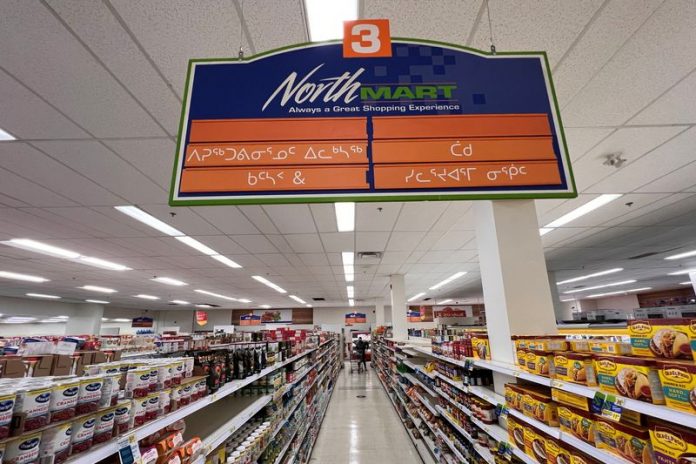(Reuters) – Canada’s annual inflation rate eased more than expected to 7.0% in August, largely on lower gasoline prices and slowing shelter costs, Statistics Canada said on Tuesday. But grocery prices rose at their fastest pace since August 1981.
Analysts polled by Reuters had expected the annual rate to fall to 7.3% in August from 7.6% in July.
COMMENTARY
JIMMY JEAN, CHIEF ECONOMIST AT DESJARDINS GROUP
“I think (the Bank of Canada) is still going to do at least 50 basis points in October. I think it might raise a debate as to whether you’re going to pursue with another rate hike in December. If we continue to see those trends, really that would make a case for them to start dialing down the rate hikes. But it’s really going to be dependent on the data. We still expect inflation to remain above 6%… by the end of the year. So we’re going to need to see a combination of factors such as wage pressures ebbing and continued improvement in supply chains.
ANDREW GRANTHAM, SENIOR ECONOMIST, CIBC CAPITAL MARKETS
“Canadian inflation decelerated further in August, and unlike the prior month the move wasn’t just a story of lower gasoline prices.”
“Even after today’s deceleration, the annual rate of inflation remains well above the Bank of Canada’s target and as such further interest rate hikes are still in the cards. However, a clearer gap appears to be opening up between Canadian and US inflation trends, which should bring a lower peak (for interest rate) from the Bank of Canada than the Federal Reserve.”
MICHAEL GREENBERG, SVP AND PORTFOLIO MANAGER, FRANKLIN TEMPLETON INVESTMENT SOLUTIONS
“It probably suggests to the Bank of Canada that hikes are starting to work but they are by no means done. It has maybe taken down some of the risk of a supersized rate hike in Canada in October but clearly there is still more wood to chop and we think that central banks, including the Bank of Canada, are still going to be pretty singularly focused on the inflation fight and getting inflation under control and down to closer to their target.”
ANDREW KELVIN, CHIEF CANADA STRATEGIST AT TD SECURITIES
“A downside surprise is better than an upside surprise where the Bank of Canada’s concerned. If you look at where the core CPI metrics are, they look like they are slightly lower on average than they were previous month. So again, that’s a positive thing for the Bank of Canada. But the big picture here is still that we’re talking about a CPI that is growing at 7% year-over-year. It’s still a highly inflationary environment, from the Bank of Canada’s perspective. So it still is going to require additional rate hikes, I don’t know that this is going to change their (Bank of Canada’s) thinking in the very near term. Though it does speak to the fact that inflation is decelerating, we have seen a peak in inflation, and they could probably afford to be a little bit more careful if they were so inclined.”
“I think ultimately the really important thing will be the evolution of inflation expectations, which we will have more information on when we get the Business Outlook Survey and Canadian survey of consumer expectations in October.”
“TD’s forecast for interest rate increases this year is “another 50 (basis points) this year, and then we have one more in January to get them 4%. But my view here is that now we’re in restrictive territory, the safest course of action is to slow down. I think they’ve front loaded enough and can revert back to the normal 25 basis point course of tightening. Having said all that, if the market demands a 50 basis point move, I don’t think the Bank of Canada can disappoint the market.”




